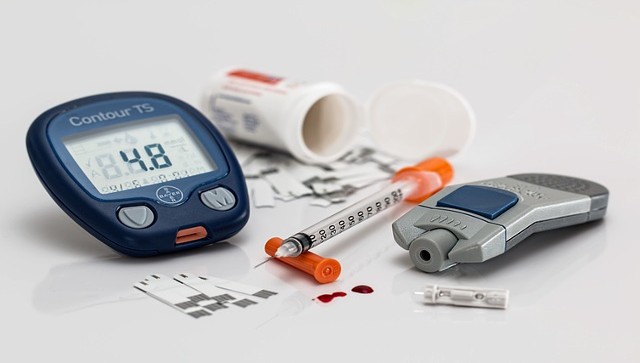In India, there are more than 2 million Chronic Kidney Disease Stage 5 (CKD5) patients who have only two options to stay alive – transplant or maintenance dialysis. With transplant having its challenges, dialysis hence is the mainstay of survival for these patients. Significant numbers get added every year with a high prevalence of diabetes and hypertension in our population. For these patients to lead meaningful and productive lives, dialysis services in the country are delivered across the public, private and trust centres. There are also several private dialysis chains that operate across all of these models augmenting the penetration of dialysis treatment to the remote corners of the country. Yet only a small percentage of CKD5 patients avail maintenance haemodialysis which is estimated to be a little above 20 million sessions in a full year across all centres. The existing patient load coupled with the medical guidelines of 3 sessions every week per patient clearly reflects that as a country, we deliver a minuscule percentage of the actual required dialysis sessions. Challenges for patients: Major challenges for patients include accessibility, affordability & lack of standardised mandatory quality protocols in all settings for such lifesaving therapy. Some service providers with limited competence, skill, and commitment to deliver this critical service, tend to cut corners thus compromising treatment outcomes and ultimately patient survival. Inadequate awareness and knowledge among the patients about disease management compound the problem. Challenges for industry: Lack of standardised protocols along with the absence of quality/credibility-based qualification criteria & service level agreements with minimum/no mention of outcome parameters means there is no entry barrier and anyone & everyone with limited knowledge and/or low commitment to quality tends to become a service provider making this a highly fragmented industry. For those who want to deliver global quality dialysis with the desired treatment outcome, the cost of service is continuously increasing as dialysis machines and many consumables are still imported. Local commercial production is extremely limited. Delayed payments from most government projects further shrink the wafer-thin margins raising questions on sustainability. Challenges for government: The government with a responsibility to ensure that all patients receive certain minimum standards of quality of dialysis and to justify the large spending of taxpayers’ money in these PPP programs needs to demand accountability from every dialysis centre/agency/organisation in terms of treatment outcomes and patient benefits. However, it is difficult for the Government to continuously monitor individual components of the dialysis service process, which involves physical checking of numerous components of the dialysis delivery process framework. Hence, the Government needs a simple, verifiable, real-time metric to compare service quality of different providers and patient survival can be an important parameter for the same. Way forward: To address such challenges, industry and government need to work together and the theme must be akin to that followed by the National TB program where the focus is not merely to make the coverage widespread for afflicted patients but to simultaneously ensure that it delivers desired treatment outcomes and ultimately improves survival and quality of life for patients. Thankfully, the penetration of dialysis services in rural India is progressively unfolding with the state PPP models along with the central government-sponsored PMNDP (Pradhan Mantri National Dialysis Program) largely addressing this, enabling mostly rural patients to avail the life-saving treatment. However, it is equally important that the services so provided achieve the best possible patient survival. This in turn depends largely on patient compliance with dialysis schedules, as well as the quality of the services being so provided. If we have to achieve the target of having a dialysis population who are physically fit, employed, productive and leading good quality lives, it is essential to monitor the quality and quantity of dialysis for every patient. This monitoring can be done by using the metric of patient survival, since this parameter is a convergence of the two variables of per-patient compliance (quantity of dialysis) as well as its efficacy (quality of dialysis). Being data-driven will eliminate the human bias in these assessments. Reimbursements to service providers can be linked to achieving targets based on this metric and such a process can progressively help raise the bar of dialysis quality. Across developed nations, some registries monitor patient survival on dialysis. In India too we now have the PMNDP portal which is commissioned to track several parameters on dialysis treatments and patients and survival should be incorporated in the same. Initiatives like mandatory quality protocols related to service delivery along with stringent periodic audits by independent authorities will ensure execution and compliance to set standards across different models. Incentives to industry encouraging local production of dialysis machines and key consumables like dialyzers, bloodlines, etc will help cut down on imports thus rationalizing cost and ensuring smooth supply. Similarly, incentivising service providers to achieve controllable quality parameters will be essential to encourage service delivery compared to global standards. Continuous patient education programs on disease management and the right to quality healthcare will further augment two critical factors for improved survival – quantity and quality of dialysis. A combination of such critical initiatives along with relentless execution of the same together by both government and industry will be the key to achieving ‘Atmanirbhar Bharat’ in dialysis delivery. The author is Group Chief Executive Officer, Apex Kidney Care Pvt. Ltd., Member of NATHEALTH. Views expressed in the above piece are personal and solely that of the author. They do not necessarily reflect Firstpost’s views.
Initiatives like mandatory quality protocols related to service delivery along with stringent periodic audits by independent authorities will ensure execution and compliance to set standards across different models
Advertisement
End of Article


)

)
)
)
)
)
)
)
)



